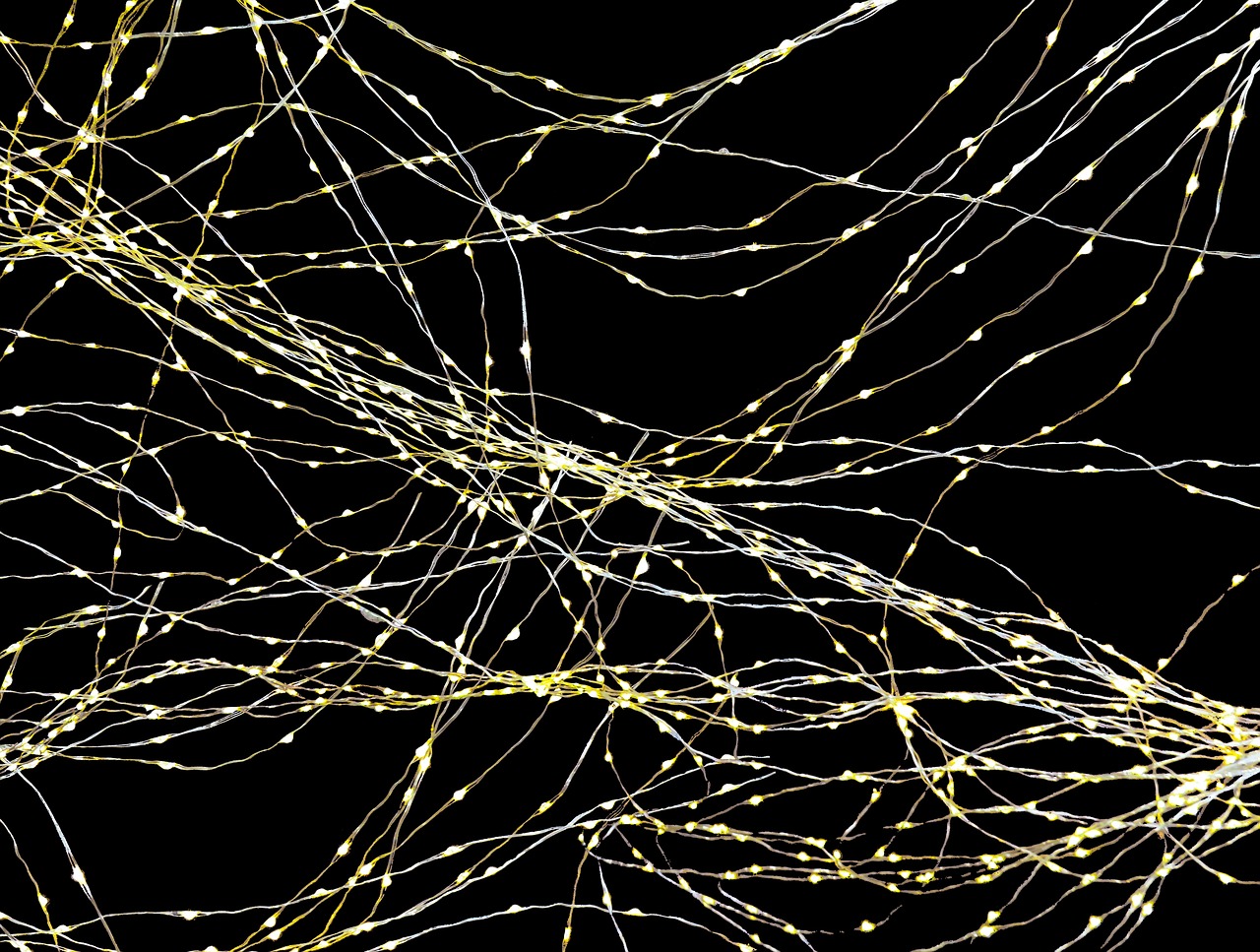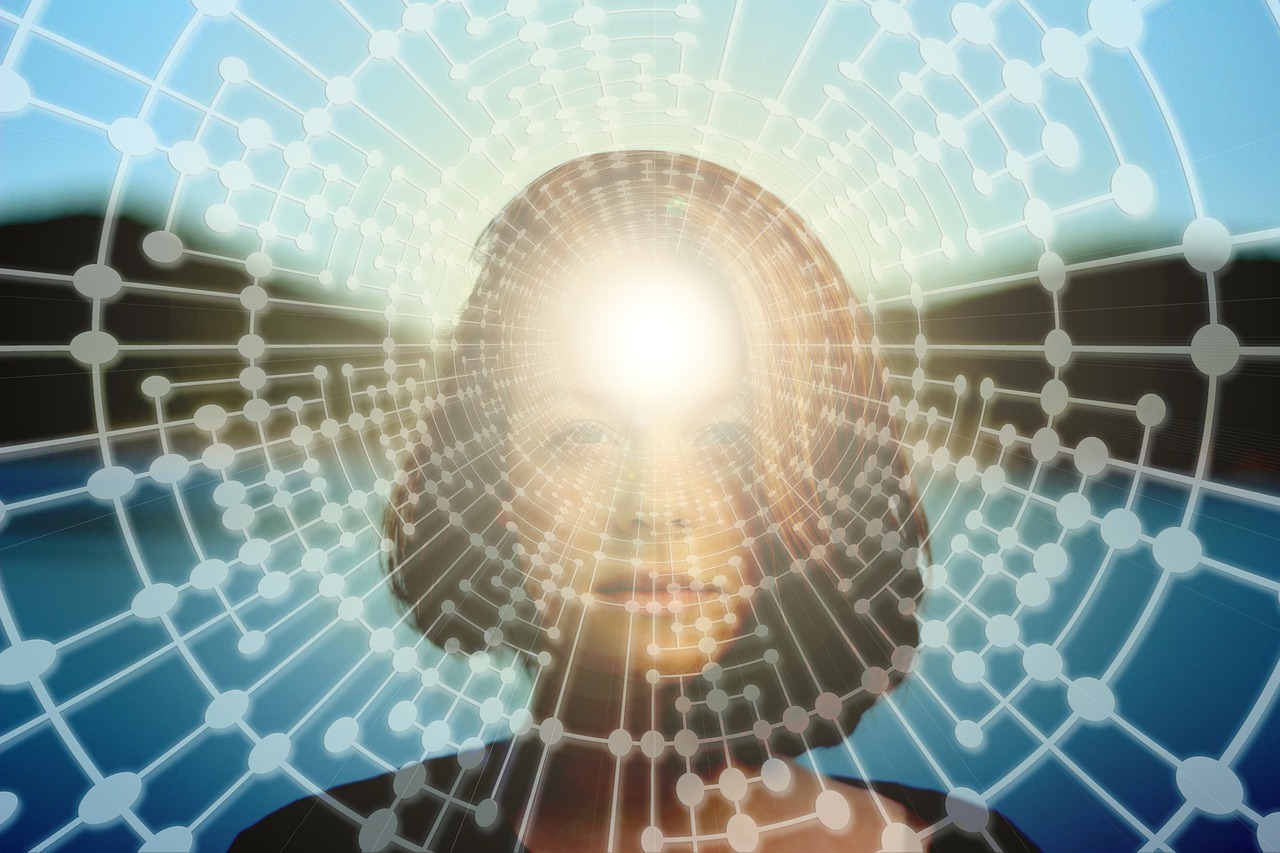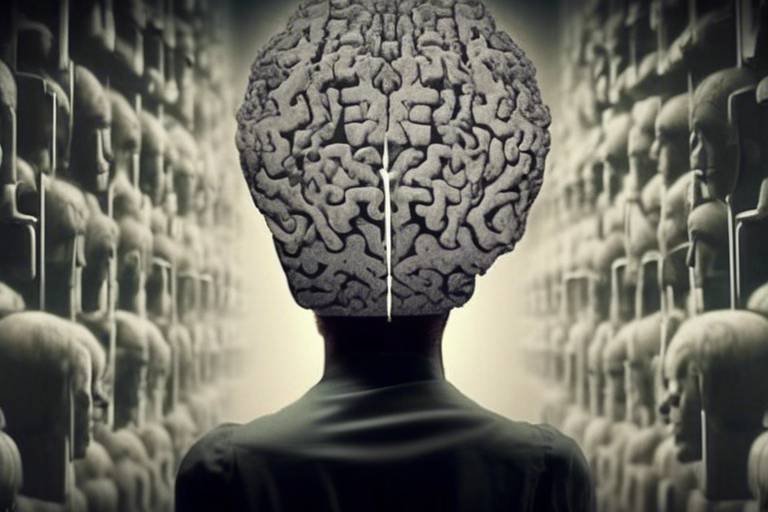Mind and Consciousness - Decoding the Unknown
The exploration of mind and consciousness is like peeling back the layers of an onion—each layer reveals new complexities and insights that challenge our understanding of what it means to be human. Have you ever wondered why we think the way we do or how we perceive the world around us? These questions are at the heart of the ongoing quest to decode the unknown realms of our cognition and awareness. In this article, we will embark on a journey through various theories, philosophical perspectives, and scientific insights that attempt to unravel these mysteries.
At its core, consciousness is the state of being aware of and able to think about one’s own existence, thoughts, and surroundings. Yet, defining consciousness is no simple task. Is it merely a byproduct of brain activity, or does it exist independently of the physical body? This question has sparked heated debates among philosophers, scientists, and psychologists alike. As we navigate through the intricate relationship between the mind and consciousness, we will examine various definitions and theories that describe the essence of consciousness and its role in shaping our human experience.
Consider this: consciousness is not just a passive experience; it's an active engagement with the world. It allows us to reflect, make decisions, and form connections with others. This dynamic aspect of consciousness is what makes it a subject of fascination and inquiry. By understanding the nuances of consciousness, we can begin to appreciate the profound impact it has on our daily lives, from the mundane choices we make to the profound moments of insight and creativity that define our existence.
As we delve deeper into the philosophical perspectives surrounding consciousness, it becomes clear that the mind is a complex entity that cannot be easily categorized. The ongoing dialogue between dualism, materialism, and idealism continues to shape our understanding of these concepts. Are we simply biological machines, or is there something more to our existence? The answers may not be straightforward, but they are essential for anyone seeking to understand the intricacies of human cognition.
Join us as we explore the rich tapestry of theories and insights that illuminate the mysteries of the mind and consciousness. From the contributions of historical figures like René Descartes to modern advancements in neuroscience, this journey promises to be both enlightening and thought-provoking.
Understanding consciousness is fundamental to exploring the mind. This section examines various definitions and theories that describe the essence of consciousness and its role in human experience.
Philosophy has long debated the nature of the mind and consciousness. Here, we explore key philosophical theories, including dualism, materialism, and idealism, that have shaped our understanding of these concepts.
This subheading contrasts dualist perspectives, which view mind and body as separate entities, with materialist views that see consciousness as a product of physical processes in the brain.
René Descartes is a pivotal figure in dualist philosophy. This section discusses his ideas on the mind-body connection and how they influence contemporary thought on consciousness.
Modern materialist theories propose that consciousness arises from neural activity. This part delves into recent scientific research supporting this view and its implications for understanding the mind.
Phenomenology focuses on subjective experience. This section explores how this philosophical approach contributes to our understanding of consciousness and the richness of human experience.
Advancements in neuroscience have provided valuable insights into the workings of the mind. This section discusses how brain studies reveal the neural correlates of consciousness and cognitive functions.
Brain imaging technologies, such as fMRI and PET scans, have revolutionized our understanding of consciousness. This subheading examines how these tools help researchers visualize brain activity related to conscious thought.
Disorders of consciousness, such as coma and vegetative states, raise important questions about awareness. This section investigates the neurological basis of these conditions and their implications for our understanding of consciousness.
- What is consciousness? - Consciousness is the state of being aware of and able to think about one's own existence, thoughts, and surroundings.
- How does the mind relate to consciousness? - The mind encompasses thoughts, feelings, and perceptions, while consciousness is the awareness of those experiences.
- What are the major theories of consciousness? - Major theories include dualism, materialism, and phenomenology, each offering different perspectives on the nature of consciousness.
- How do brain imaging techniques contribute to our understanding of consciousness? - Techniques like fMRI and PET scans allow researchers to visualize and study brain activity associated with conscious thought.

The Nature of Consciousness
Understanding consciousness is fundamental to exploring the mind. But what exactly is consciousness? It’s a term that often evokes a sense of mystery, almost like trying to catch smoke with your bare hands. Many have attempted to define it, and while some definitions resonate more than others, a common thread is that consciousness is our awareness of ourselves and our surroundings. This awareness encompasses a vast array of experiences, from the mundane to the profound, and it plays a crucial role in shaping our reality.
At its core, consciousness can be seen as a spectrum. On one end, we have full awareness, where we are acutely aware of our thoughts, feelings, and the world around us. On the other end lies unconsciousness, where awareness fades completely. In between, there are varying states such as dreaming, daydreaming, and altered states induced by meditation or substances. This spectrum invites us to ponder: how do these different states of consciousness arise? What mechanisms in the brain are responsible for such a rich tapestry of experiences?
Philosophers and scientists alike have long sought to unravel this complexity. Some argue that consciousness is a byproduct of neural processes, while others maintain that it is a fundamental aspect of existence, perhaps even the essence of our being. To illustrate, consider the following definitions that have emerged over time:
| Definition | Description |
|---|---|
| Phenomenal Consciousness | The subjective experience of perceptions and sensations. |
| Access Consciousness | The ability to access and report on mental states. |
| Self-Consciousness | A heightened awareness of oneself as a distinct entity. |
Each of these definitions highlights different facets of consciousness, suggesting that it is not a singular entity but rather a complex interplay of various elements. This complexity raises intriguing questions: Can consciousness exist without self-awareness? Is it possible for non-human entities to possess consciousness? These inquiries not only challenge our understanding of consciousness but also invite us to reconsider the very nature of existence itself.
Furthermore, the relationship between consciousness and the brain is a fascinating area of study. Neuroscientists have made significant advancements in identifying the neural correlates of consciousness, suggesting that specific brain regions are activated during conscious experiences. For instance, the prefrontal cortex is often associated with higher cognitive functions, while the thalamus plays a crucial role in sensory perception. This leads us to ponder: if consciousness is tied to particular brain functions, what happens when those functions are impaired?
As we delve deeper into the nature of consciousness, we must also consider the implications of our findings. Understanding consciousness could revolutionize fields such as psychology, artificial intelligence, and even ethics. For instance, if we can pinpoint the neural mechanisms that give rise to consciousness, could we create machines that possess a form of awareness? Or, conversely, how do we treat individuals who exist in states of diminished consciousness? These questions remind us that the exploration of consciousness is not merely an academic pursuit; it has profound real-world consequences.
In conclusion, the nature of consciousness is a vast and intricate subject that intertwines philosophy, neuroscience, and personal experience. As we continue to explore this enigmatic phenomenon, we open the door to new understandings of what it means to be human. It’s a journey filled with questions, discoveries, and perhaps, some surprising answers along the way.
- What is consciousness? Consciousness refers to our awareness of ourselves and our environment, encompassing a wide range of experiences.
- Is consciousness the same as self-awareness? Not exactly. While self-awareness is a part of consciousness, consciousness also includes awareness of external stimuli.
- Can machines be conscious? This remains a topic of debate. Some researchers believe that consciousness is inherently tied to biological processes, while others explore the potential for artificial consciousness.

Philosophical Perspectives
The exploration of consciousness is not just a scientific endeavor; it is deeply rooted in philosophical inquiry. Over centuries, thinkers have grappled with the fundamental questions of what it means to be conscious and how this relates to our understanding of the mind. Philosophy offers a rich tapestry of perspectives that illuminate the intricate relationship between consciousness and the human experience. From the ancient Greeks to contemporary philosophers, the debate has evolved, yet the core questions remain tantalizingly elusive.
At the heart of this philosophical exploration are three dominant theories: dualism, materialism, and idealism. Each of these perspectives provides a unique lens through which to view the mind and consciousness. Dualism, famously championed by René Descartes, posits that the mind and body are fundamentally different substances. This perspective suggests that consciousness exists independently of the physical brain, leading to intriguing implications about the nature of reality and personal identity.
In contrast, materialism argues that consciousness is entirely a product of physical processes within the brain. This view aligns with modern scientific approaches and suggests that our thoughts, feelings, and experiences can be traced back to neural activity. Materialists contend that understanding the brain's workings will ultimately unlock the mysteries of consciousness. Meanwhile, idealism takes a more abstract approach, positing that reality is fundamentally mental and that consciousness shapes our experience of the world.
To further illustrate these contrasting views, consider the following table:
| Theory | Core Belief | Key Proponents |
|---|---|---|
| Dualism | The mind and body are distinct entities. | René Descartes, Plato |
| Materialism | Consciousness arises from physical processes in the brain. | Daniel Dennett, Paul and Patricia Churchland |
| Idealism | Reality is fundamentally mental; consciousness shapes our experience. | Bishop Berkeley, Hegel |
Each philosophical stance not only shapes our understanding of consciousness but also influences how we approach ethical questions surrounding artificial intelligence, mental health, and personal identity. For instance, if consciousness is merely a product of brain activity, what does that imply for our understanding of free will? Conversely, if consciousness exists apart from the physical brain, how do we account for the experiences of individuals who have suffered brain injuries yet retain some level of awareness?
As we navigate these philosophical waters, it becomes clear that the relationship between the mind and consciousness is as complex as it is fascinating. The interplay of these theories continues to inspire debate and inquiry, challenging us to reconsider our assumptions about what it means to be conscious. In the end, whether one aligns with dualism, materialism, or idealism, the quest to understand consciousness remains a profound journey into the heart of human existence.
- What is dualism? Dualism is the philosophical perspective that posits the mind and body as separate entities, suggesting that consciousness exists independently of physical processes.
- How does materialism explain consciousness? Materialism argues that consciousness arises from physical processes in the brain, meaning that our thoughts and experiences can be traced back to neural activity.
- What is idealism in the context of consciousness? Idealism is the view that reality is fundamentally mental, implying that consciousness shapes our experience of the world around us.
- Why is the study of consciousness important? Understanding consciousness is crucial for exploring fundamental questions about human identity, free will, and the nature of reality itself.

Dualism vs. Materialism
The age-old debate between dualism and materialism is like a philosophical tug-of-war that has captivated thinkers for centuries. At its core, dualism posits that the mind and body are distinct entities, each with its own essence and properties. This perspective, famously championed by René Descartes, suggests that our mental experiences—thoughts, feelings, and consciousness—exist independently of our physical form. Imagine your mind as a ghost in a machine, floating free from the constraints of the body. This view raises intriguing questions: If the mind is separate, what happens to it after death? Is consciousness something that can exist outside of the brain?
On the flip side, we have materialism, which argues that everything about consciousness can be explained through physical processes. According to this view, our thoughts and experiences are merely the byproducts of neural activity. Think of it like a computer running software; the hardware (the brain) drives the software (the mind). This perspective aligns with modern scientific inquiry, as researchers delve into the brain's workings to uncover how consciousness arises from physical interactions. This leads to some compelling implications: if consciousness is entirely a product of the brain, what does that mean for free will? Are our thoughts merely chemical reactions?
To further illustrate the differences between these two perspectives, let’s break down some key points:
- Nature of Existence: Dualism asserts a dual nature of existence (mind and body), while materialism insists on a single, physical reality.
- Consciousness: Dualists view consciousness as an immaterial entity, whereas materialists see it as a result of brain activity.
- Implications for Afterlife: Dualism opens the door to the possibility of life after death, while materialism typically concludes that consciousness ceases with death.
As we navigate through these contrasting views, it’s essential to recognize that both perspectives offer valuable insights into the nature of human experience. Each theory invites us to ponder profound questions about existence, identity, and the essence of being. While dualism captures the imagination with its notion of a separate mind, materialism grounds us in the scientific realities of our physical world. The ongoing dialogue between these two schools of thought continues to shape our understanding of consciousness and the human experience.
- What is dualism? Dualism is the belief that the mind and body are two distinct entities that interact with each other.
- What is materialism? Materialism is the philosophical view that everything, including consciousness, can be explained in terms of physical processes.
- Can consciousness exist without the brain? Dualists argue that consciousness can exist independently of the brain, while materialists contend that consciousness arises from brain activity.
- What are the implications of each perspective? Dualism raises questions about the afterlife and the nature of the self, while materialism emphasizes a scientific understanding of human experience.

René Descartes' Contributions
René Descartes, often hailed as the father of modern philosophy, made profound contributions to our understanding of the mind and consciousness. His famous dictum, "Cogito, ergo sum" (I think, therefore I am), encapsulates the essence of his philosophical inquiry into the nature of existence and consciousness. Descartes proposed that the act of thinking is a clear indication of one's existence, emphasizing the centrality of the mind in defining what it means to be human.
One of Descartes' most significant contributions is his dualistic view of the mind-body relationship. He posited that the mind and body are fundamentally different substances; the mind is non-physical and the seat of consciousness, while the body is physical and operates in accordance with the laws of nature. This dualism raises intriguing questions about how these two distinct entities interact. Descartes suggested that this interaction occurs in the pineal gland, a small gland located in the brain, which he believed was the point of connection between the immaterial mind and the physical body.
Descartes' dualism laid the groundwork for future philosophical debates regarding the nature of consciousness. His ideas prompted subsequent thinkers to explore whether consciousness could be fully explained through physical processes or whether it represented something more profound and elusive. This inquiry has evolved into a rich tapestry of philosophical thought, influencing both metaphysics and cognitive science.
Moreover, Descartes' method of systematic doubt—where he questioned everything he believed until he reached something indubitable—has had lasting implications for scientific inquiry and rational thought. By advocating for a clear and distinct understanding of ideas, Descartes encouraged a rigorous approach to knowledge that continues to resonate in contemporary philosophical and scientific discussions.
In summary, René Descartes' contributions to the study of the mind and consciousness are monumental. His dualistic framework, emphasis on the importance of thought, and method of inquiry have not only shaped philosophical discourse but have also paved the way for modern explorations into the nature of consciousness. Understanding his ideas is crucial for anyone interested in the intricate relationship between the mind and consciousness.
- What is Cartesian dualism? Cartesian dualism is the philosophical concept proposed by René Descartes that posits the mind and body as two distinct entities that interact with each other.
- How did Descartes influence modern philosophy? Descartes influenced modern philosophy by introducing a method of systematic doubt and emphasizing the importance of rational thought and the role of consciousness in defining existence.
- What is the significance of "Cogito, ergo sum"? "Cogito, ergo sum" signifies that the act of thinking is proof of one's existence, highlighting the importance of consciousness in understanding the self.

Modern Materialist Theories
In the vast landscape of consciousness studies, stand out as a beacon of scientific inquiry. These theories propose that consciousness is not some ethereal essence but rather a direct product of physical processes occurring within the brain. Imagine for a moment that the mind is like a complex orchestra, where each musician represents a different neural process. When all the instruments play in harmony, we experience consciousness. This perspective shifts the focus from mystical interpretations to a more grounded understanding that emphasizes the brain's intricate workings.
Recent advancements in neuroscience have bolstered the materialist view, providing evidence that our thoughts, feelings, and experiences are deeply intertwined with the brain's activity. For instance, studies using electroencephalograms (EEGs) and functional magnetic resonance imaging (fMRI) have shown that specific brain regions light up during different cognitive tasks. This correlation between brain activity and conscious experience suggests that consciousness is not an abstract concept but a tangible phenomenon rooted in our biology.
One of the most compelling aspects of modern materialist theories is their ability to explain various cognitive functions in terms of neural mechanisms. For example, researchers have identified neural correlates for processes such as attention, memory, and perception. This has led to an exciting hypothesis: if we can map out the neural pathways associated with these functions, we can better understand how consciousness arises. It’s like piecing together a puzzle where each piece represents a different aspect of our cognitive experience.
Moreover, the implications of these theories extend beyond mere academic interest. They challenge us to reconsider what it means to be conscious. If consciousness is indeed a byproduct of neural processes, then phenomena such as altered states of consciousness, induced by drugs or meditation, can be studied through a scientific lens. This opens up a world of possibilities for understanding not just the normal state of consciousness but also its variations.
However, the materialist approach is not without its critics. Some argue that reducing consciousness to mere brain activity overlooks the subjective quality of experiences—what philosophers refer to as qualia. These critics contend that while we may understand the mechanics of thought, the essence of what it feels like to be conscious remains elusive. This ongoing debate keeps the conversation lively and underscores the complexity of consciousness as a topic.
In summary, modern materialist theories offer a robust framework for understanding consciousness through the lens of neuroscience. They encourage us to explore the intricate connections between brain activity and conscious experience, paving the way for future discoveries. As we continue to unravel the mysteries of the mind, these theories remind us that the journey is just as important as the destination.
- What are modern materialist theories? Modern materialist theories suggest that consciousness arises from physical processes in the brain, emphasizing a scientific approach to understanding the mind.
- How do brain studies support these theories? Techniques like fMRI and EEG allow researchers to observe brain activity during various cognitive tasks, establishing a connection between neural processes and conscious experience.
- What are some criticisms of materialist theories? Critics argue that reducing consciousness to brain activity neglects the subjective quality of experiences, known as qualia, which remains a significant aspect of consciousness.

Phenomenology and Conscious Experience
Phenomenology, a philosophical movement initiated by Edmund Husserl, dives deep into the realm of subjective experience, aiming to uncover the layers of consciousness that shape our perception of reality. It’s like peeling an onion, where each layer reveals more about how we experience the world around us. At its core, phenomenology emphasizes the importance of understanding how individuals perceive, feel, and interpret their experiences, rather than merely relying on objective measurements or external observations. This perspective invites us to ask: What does it really mean to be conscious?
One of the fundamental tenets of phenomenology is that consciousness is always directed towards something; it is intentional. This means that every thought, feeling, or perception is about something, whether it’s a fleeting moment of joy or a profound existential crisis. Imagine you’re gazing at a beautiful sunset. Your consciousness is not just a passive observer; it actively engages with the colors, the fading light, and the emotions that arise. This interaction forms the essence of what phenomenologists seek to understand.
Furthermore, phenomenology highlights the significance of lived experience. It encourages us to consider how our personal histories, cultural backgrounds, and emotional states influence our perceptions. For instance, two individuals witnessing the same event might interpret it entirely differently based on their unique experiences. This subjectivity is crucial in understanding consciousness, as it reflects the rich tapestry of human life. To illustrate this point, consider the following table that contrasts objective observations with subjective experiences:
| Aspect | Objective Observation | Subjective Experience |
|---|---|---|
| Event | A thunderstorm occurs. | I feel anxious and nostalgic as I remember childhood storms. |
| Color | The sky is gray. | The gray sky feels heavy and oppressive to me. |
| Sound | Rain falls on the roof. | The sound of rain is soothing, reminding me of peaceful nights. |
This table exemplifies how phenomenology seeks to bridge the gap between the external world and our internal experiences. By focusing on the subjective nature of consciousness, we can gain insights into how individuals navigate their realities. This approach not only enriches our understanding of consciousness but also enhances fields such as psychology, cognitive science, and even art. It opens up a dialogue that emphasizes empathy and understanding, urging us to consider the diverse ways in which people experience the world.
In summary, phenomenology offers a profound lens through which we can explore consciousness. It challenges us to move beyond mere observations and delve into the rich, subjective experiences that define our human existence. By embracing this perspective, we can uncover the intricate connections between mind, experience, and consciousness, ultimately leading to a deeper appreciation of what it means to be alive.
- What is phenomenology? Phenomenology is a philosophical approach that studies the structures of experience and consciousness, focusing on subjective perceptions.
- How does phenomenology differ from other philosophical approaches? Unlike other approaches that may prioritize objective measurements, phenomenology emphasizes individual lived experiences and interpretations.
- Why is subjective experience important in understanding consciousness? Subjective experiences shape how we perceive and interpret reality, revealing the complexities of human consciousness.
- Can phenomenology be applied in scientific research? Yes, phenomenology can inform qualitative research methods, enhancing our understanding of human behavior and cognition.

Neurological Insights
Advancements in neuroscience have opened up a fascinating window into the inner workings of the human mind. With cutting-edge technology, researchers have begun to unravel the complex relationship between neural processes and consciousness. But what exactly does this mean for our understanding of the mind? Imagine your brain as a bustling city, with neurons acting as the roads and highways, carrying information to and fro. This intricate network is not just a static structure; it’s a dynamic, ever-evolving system that plays a critical role in shaping our thoughts, feelings, and perceptions.
One of the most significant breakthroughs in this field has been the development of brain imaging techniques. Tools like functional Magnetic Resonance Imaging (fMRI) and Positron Emission Tomography (PET) scans allow scientists to visualize brain activity in real-time. These technologies have revolutionized our approach to studying consciousness. For instance, when a person engages in a specific task, such as solving a puzzle or recalling a memory, these imaging techniques can highlight which areas of the brain are activated. This not only provides insights into how we think but also sheds light on the neural correlates of conscious experience.
Furthermore, the exploration of consciousness disorders has become a pivotal area of research. Conditions such as coma, vegetative states, and locked-in syndrome challenge our understanding of awareness and cognition. In these states, individuals may appear unresponsive, yet recent studies suggest that some may retain a level of consciousness that is not immediately observable. For example, researchers have found that certain patients can respond to commands through brain activity, even when they cannot physically express their thoughts. This raises profound questions: What does it mean to be conscious? How do we define awareness? Are there layers of consciousness that we have yet to understand?
To illustrate the impact of neurological research on our understanding of consciousness, consider the following table summarizing key brain imaging techniques:
| Technique | Description | Applications |
|---|---|---|
| fMRI | Measures brain activity by detecting changes in blood flow. | Used to study brain functions, cognitive processes, and responses to stimuli. |
| PET | Uses radioactive tracers to visualize metabolic processes in the brain. | Helps diagnose neurological disorders and assess brain function. |
| EEG | Records electrical activity in the brain using sensors placed on the scalp. | Useful for studying sleep, seizures, and other brain activity patterns. |
As we delve deeper into the neurological underpinnings of consciousness, it becomes clear that the journey is just beginning. Each discovery leads to new questions, and each question invites further exploration. The brain is not merely a biological organ; it is a gateway to understanding what it means to be human. So, what lies ahead? Will we eventually decode the mysteries of consciousness, or will it remain one of the last frontiers of science? Only time will tell.
In conclusion, the insights gained from neurological research are invaluable for grasping the complexities of the mind and consciousness. By leveraging advanced technologies and methodologies, we are not just scratching the surface; we are diving into the depths of human cognition, inching closer to the elusive understanding of what it means to be aware. The implications of these findings are profound, influencing not only science but also philosophy, psychology, and even ethics.
- What is consciousness? Consciousness refers to the state of being aware of and able to think about one's own existence, thoughts, and surroundings.
- How do brain imaging techniques work? These techniques visualize brain activity by detecting changes in blood flow or metabolic processes, allowing researchers to see which areas of the brain are active during specific tasks.
- What are consciousness disorders? These are medical conditions that affect awareness and cognitive functioning, such as coma, vegetative states, and locked-in syndrome.
- Can consciousness be measured? While we can observe neural activity associated with conscious thought, measuring consciousness itself remains a complex challenge.

Brain Imaging Techniques
When it comes to understanding the complex workings of the human mind, are like having a window into the brain's inner sanctum. These cutting-edge technologies allow researchers to visualize and analyze brain activity in real-time, providing invaluable insights into how consciousness operates. Imagine trying to solve a puzzle without seeing the pieces – that’s what studying the brain was like before these techniques emerged. Now, with tools like fMRI (functional Magnetic Resonance Imaging) and PET (Positron Emission Tomography) scans, scientists can observe the brain in action, revealing the intricate dance of neurons that underpins our thoughts, emotions, and sensory experiences.
One of the most fascinating aspects of these imaging techniques is their ability to correlate specific brain regions with particular cognitive functions. For instance, when we engage in problem-solving or creative thinking, certain areas of the brain light up, much like a city skyline at night. This not only helps us understand which parts of the brain are involved in various tasks but also sheds light on the underlying mechanisms of consciousness itself. By mapping brain activity, researchers can draw connections between neural processes and conscious experiences, providing a clearer picture of how we perceive the world around us.
Here’s a quick overview of some of the most prominent brain imaging techniques:
| Technique | Description | Advantages |
|---|---|---|
| fMRI | Measures brain activity by detecting changes in blood flow. | High spatial resolution; non-invasive. |
| PET | Uses radioactive tracers to observe metabolic processes in the brain. | Good for studying brain metabolism; can detect diseases. |
| EEG | Records electrical activity in the brain using electrodes placed on the scalp. | Excellent temporal resolution; useful for studying sleep and seizures. |
Each of these techniques has its strengths and weaknesses, making them suitable for different types of research questions. While fMRI provides stunning images that reveal which areas of the brain are active during specific tasks, EEG offers a rapid glimpse into the brain’s electrical activity, allowing researchers to track changes in consciousness almost instantaneously. This combination of tools enables a more comprehensive understanding of how consciousness emerges from the brain's intricate network.
Moreover, the implications of these imaging techniques extend beyond academic research. They hold potential for clinical applications as well, such as diagnosing and treating various neurological disorders. For instance, understanding how different brain regions interact in patients with conditions like Alzheimer’s or schizophrenia can lead to more effective treatment strategies. In this way, brain imaging not only decodes the mysteries of consciousness but also paves the way for advancements in mental health and cognitive therapy.
As we continue to refine these technologies and develop new methods for studying the brain, the future looks promising. We stand on the brink of discovering even more about the relationship between the mind and consciousness, and how our brain's activity shapes our reality. It’s an exciting time in neuroscience, where each new study could unlock further secrets of the mind, helping us understand not just what consciousness is, but how it influences every aspect of our lives.

Consciousness Disorders
Consciousness disorders are fascinating yet complex phenomena that challenge our understanding of awareness and the mind. These disorders can manifest in various forms, significantly affecting an individual's ability to respond to their environment, engage in meaningful interactions, and maintain a sense of self. Some of the most notable disorders include coma, vegetative state, and minimally conscious state. Each condition presents unique characteristics and implications for both the individuals affected and their families.
To grasp the essence of these disorders, it's essential to consider their neurological underpinnings. For instance, a coma is a state of profound unconsciousness where a person cannot be awakened, failing to respond to stimuli. This condition often results from severe brain injury, stroke, or drug overdose. In contrast, individuals in a vegetative state may exhibit sleep-wake cycles but lack any signs of awareness or purposeful response. They might open their eyes, but their lack of interaction raises critical questions about the nature of consciousness itself.
The minimally conscious state is a slightly brighter scenario where patients show intermittent signs of awareness. They might follow simple commands or respond to emotional stimuli, which can be a glimmer of hope for families. Understanding these disorders not only sheds light on the complexities of consciousness but also emphasizes the need for compassionate care and ethical considerations when dealing with patients who are unable to communicate.
Recent advancements in neuroscience have provided valuable insights into the neural correlates of these states. Brain imaging technologies, such as functional Magnetic Resonance Imaging (fMRI) and Positron Emission Tomography (PET), have allowed researchers to visualize brain activity in individuals diagnosed with consciousness disorders. These techniques have revealed that even patients in vegetative states may exhibit brain activity in response to specific stimuli, suggesting that some level of awareness could exist.
However, interpreting these findings is not without its challenges. The ethical implications of treating individuals with consciousness disorders are profound. How do we determine the quality of life for someone who cannot express their thoughts or feelings? What responsibilities do we have towards them? These questions are vital as they intersect with medical, philosophical, and ethical domains.
In summary, consciousness disorders present a profound mystery at the intersection of neurology and philosophy. They compel us to rethink our definitions of consciousness and awareness, pushing the boundaries of what it means to be "alive" and "aware." As we continue to explore these conditions, we must remain sensitive to the experiences of those affected, advocating for their dignity and rights in the face of uncertainty.
- What is the difference between a coma and a vegetative state? A coma is a state of unresponsiveness where a person cannot be awakened, while a vegetative state involves sleep-wake cycles without awareness.
- Can individuals in a vegetative state hear or understand their surroundings? Some studies suggest that they may have limited awareness, but responses can be difficult to measure.
- What role do family members play in the care of someone with a consciousness disorder? Family members often serve as advocates for care decisions and emotional support for the patient and healthcare providers.
- How do advancements in technology help in understanding consciousness disorders? Technologies like fMRI and PET scans help visualize brain activity, providing insights into the level of awareness in patients.
Frequently Asked Questions
- What is consciousness?
Consciousness refers to the state of being aware of and able to think about one's own existence, thoughts, and surroundings. It's like the spotlight in a theater, highlighting what we are focused on while the rest fades into the background.
- How do philosophers view the mind and consciousness?
Philosophers have debated these concepts for centuries. Some, like Descartes, argue for dualism, suggesting that the mind and body are separate. Others lean towards materialism, believing that consciousness arises from physical processes in the brain. It’s a bit like trying to decide whether a movie is more about the plot or the actors.
- What are some modern theories of consciousness?
Modern theories often focus on the brain's neural activity. Scientists use advanced imaging techniques to study how different brain regions contribute to conscious thought, suggesting that consciousness is deeply rooted in our biology.
- What role does phenomenology play in understanding consciousness?
Phemonology emphasizes subjective experience, highlighting how personal perceptions shape our understanding of consciousness. It’s like looking through a unique lens that colors everything we experience.
- How have advancements in neuroscience impacted our understanding of consciousness?
Neuroscience has provided groundbreaking insights into how the brain functions. Techniques like fMRI and PET scans allow researchers to visualize brain activity, giving us clues about how consciousness works in real time.
- What are consciousness disorders?
Consciousness disorders, such as coma or vegetative states, challenge our understanding of awareness. These conditions raise important questions about the nature of consciousness and what it means to be aware, much like a puzzle with missing pieces.
- Can consciousness be measured scientifically?
While consciousness itself is challenging to quantify, scientists use various methods to study its neural correlates. By examining brain activity patterns, researchers can infer aspects of conscious experience, though it’s still a work in progress.
- Is consciousness the same as self-awareness?
Not quite! While consciousness includes self-awareness, it also encompasses a broader range of experiences and perceptions. Think of consciousness as a vast ocean, with self-awareness being one of the many islands within it.



















